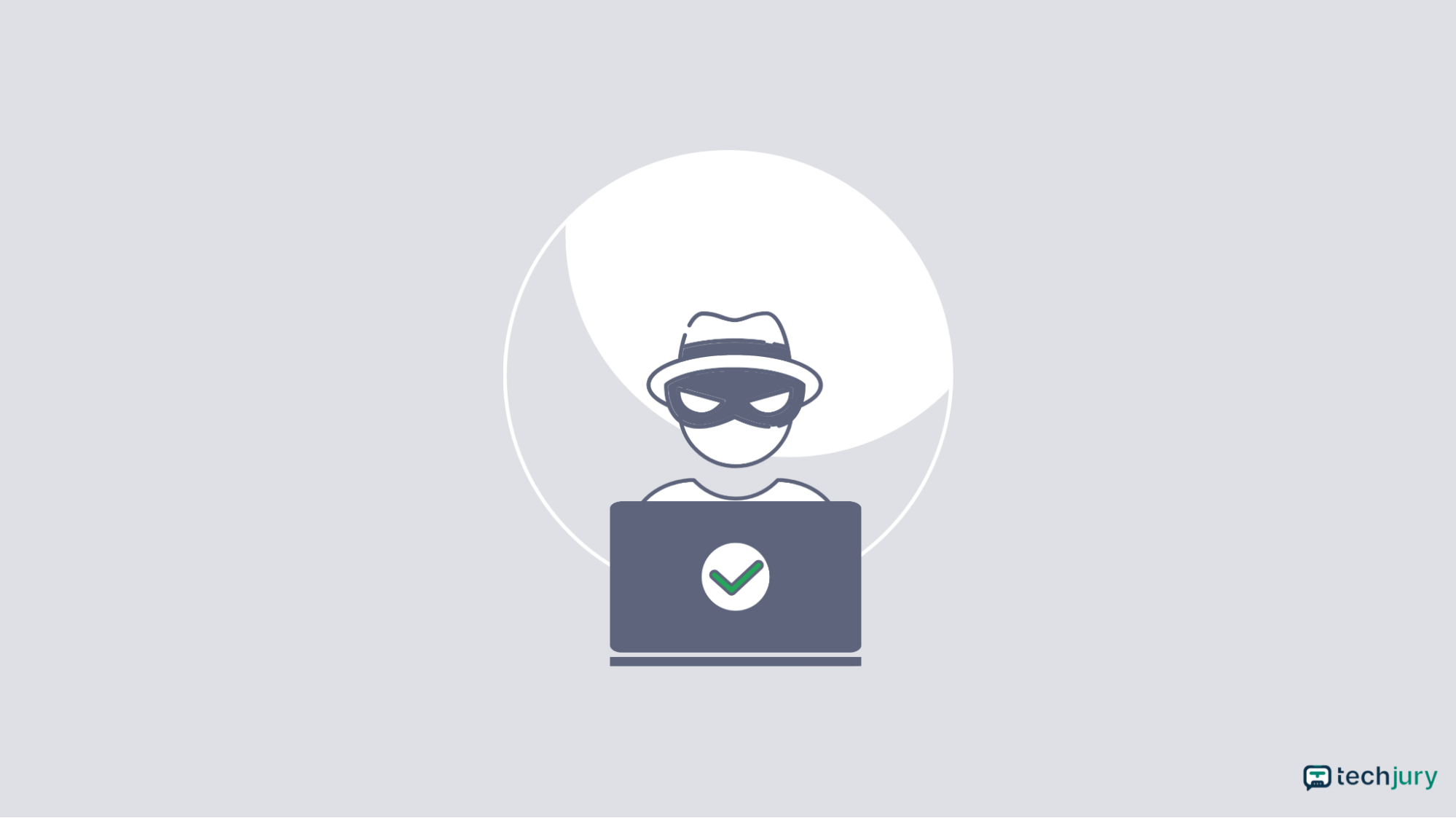

Updated · Jan 10, 2024
Updated · Jan 02, 2024
Raj Vardhman is a tech expert and the Chief Tech Strategist at TechJury.net, where he leads the rese... | See full bio
If I was asked to describe myself using just a few words, I’d go with digital marketing expert, ex... | See full bio
White hat hackers or ethical hackers are one of the cybersecurity experts that hacks a system to test it. Although they “hack” the system, they have the owner’s consent.
According to the FBI, over 300,000 Americans are targeted by hackers yearly. In 2021, businesses allocated 12.7% of their budget to cybersecurity. With this increased budget, companies hire white hat hackers to hack and upgrade the system.
These hackers would access the information system using black hat hacking techniques; however, they had consent from the owner.
Read more on how white hat hackers work and their goals.
|
🔑Key Takeaway:
|

White Hat Hackers would try to invade the system to test the capability of it. They would use different kinds of techniques to overrun your security.
According to HackerOne, organizations allocated more than $30 million to white hat hackers from 2012 to 2018.
They are often hired by businesses to combat their cybersecurity team. Additionally, it will attempt to trick the staff into downloading various malware types.
These hackers choose the most ethical way to do their skills without consequences.
White Hat Hacker: Goals and Motivation
As they gained more expertise in this field, many hackers began to satisfy their curiosity. They typically hack systems to get money and make money. It may result from either legal or illegal hacking.
The desire to hack freely and without repercussions drives the majority of white hat hackers. They often use their hacking abilities to get money and find employment.
|
👍Helpful Article: Black hat hackers don't care about morals; they worry about making money from you. Being a white hat hacker still entails using black hat techniques to break into systems. Here's a more in-depth discussion about black hat hackers. |
The organization can modernize its system by collaborating with white hat hackers and staying secure from modern cybersecurity threats.
Here are some techniques used by white hat hackers.
This technique would try to overcome the firewall. It would be a stimulation of cyberattacks to check the system's vulnerability.
Social engineering relies on human error to gather information offline, online, or through other types of interaction. It manipulates staff by deceiving them into taking over the approach to check the employee’s awareness.
White hat hackers would attempt to guess the passwords of the workers. They will also try to use password-cracking software to weaken the user's passcode.
They would test the security of wireless networks as they can be vulnerable to cyberattacks. Hackers often try using tools to capture access points and crack weak encryptions.
This is used to identify flaws in the security of software applications. Static analyzes code without executing it, while dynamic analyzes the code while running.
|
💻Definition: "Cyberattack" broadly refers to any instance in which a hacker or group of hackers attempts to penetrate a computer system, network, or another device to cause damage. |
Read on the legality of white hat hackers.
White hacking is legal if it has the owner's consent. It will remain legal as the hacker would protect the system while hacking it.
The government often contacts and hires ethical hackers as various organizations use them to upgrade the system.
|
💡Did You Know? The US Department of Defense paid an estimated $75,000 to white hat hackers. They are hired to find vulnerabilities in the DoD security system. There are more than 600 reports submitted to them. Some reports say there are nearly 350 active malware inside the security network of DoD. |
After knowing that white hat hackers are legal, the following section discusses how different countries made them legal.
The Department of Justice revised its US Computer Fraud and Abuse Act. As this act often threatened white hat hackers of violation of CFAA.
The Belgian Center for Cybersecurity (CCB) announced that ethical hackers would have legal protection. The activities they do are private and consented with the other party.
There are proposals for an amendment to Product Security and Telecommunications Infrastructure (PSTI) to protect ethical hackers. This bill would be under the Computer Misuse Acts, a legal defense of cybersecurity experts.
White hat hackers become legal jobs now. Organizations can hire them as a hacker to assess their security team.
Here are some famous white hat hackers.
There are many hackers to learn from as the number of ethical hackers rises. These people support businesses in keeping their security systems safe.
The following are some of history's most famous White Hat Hackers.

Tim Berners-Lee is renowned for creating World Wide Web (www). He started as a white hat hacker before inventing www.
Tim was also banned from using his college computer at Oxford as a student.

Kevin Mitnick was a black hat hacker on the FBI's most wanted list. He served some time after hacking into one of the biggest companies in the world.
Mitnick hacked and stole codes from Sun Microsystems, Motorola, and Nokia and pleaded guilty upon arrest.
He changed his ways after being freed, becoming an ethical hacker, a writer, and a consultant.

Tsutomu and Mitnick had a complicated relationship. Mitnick hacked Tsutoma back in his black-hat days. Tsutomu takes his revenge by assisting the FBI in tracking and locating Mitnick.
Tsutomu was regarded as a white web hacker because of this.

Kamisnky is among the most known white hat hackers. Dan played a significant role in fighting cybercrime since 2008.
He found a serious DNS vulnerability in which DNS sends users to impostor sites instead of the real ones such as Google, Bank, etc.
White hat hackers are security developers and engineers with cybersecurity backgrounds. They have to breach the security system to fix its vulnerabilities.
Read more on how to become a white hat hacker.
As a hacker, you should be able to keep up with the evolving cyberattacks.
Here are the basic requirements to become one white hat hacker.
|
Programming Skills |
Ethical hackers should be able to create honeypots that serve as a decoy to lure cybercriminals. |
|
CEH (Certified Ethical Hacker) Certificate |
Before you apply to companies, you should be able to obtain this certificate. It will show your assessment of knowledge about computers. You can get exams for the CEH certificate in ECC Exam Centre and Pearson Vue testing centers. |
|
Degree in Computer Science, Engineering, or Mathematics |
Companies requirements differ. However, a white hat hacker must have a bachelor's degree in Computer Science, Engineering, and Mathematics. This degree is essential as the companies would determine your skills in your educational attainment. |
As of 2023, a white hat hacker's annual income in the US is predicted to be between $70,000 and $80,000, as the basic salary of full-time ethical hackers.
The renowned white hat hackers can make up to $100,000 for each vulnerability they discover in the system.
You can apply everywhere. Companies in the tech and telecom industries are constantly looking for new ethical hackers.
Any security firm will hire new people to work as white hat hackers. Governmental organizations are another option, as they frequently require more personnel.
You can also find white hat jobs online as a freelancer. Ethical hackers can earn money through the bug-bounty system and consultations.
Hackers come in various forms. They differ from each other as they function differently.
Here are some hat types to know.
Black hat hackers earn money by hacking the system and stealing information. They are on the illegal side, as they would use their skills to blackmail or commit online identity theft.
Grey hat hackers are in-between. They have no malicious motive but don’t have any consent.
They are the newbies in hacking. They often do phishing and other social engineering tools.
Blue hat hackers are also white hat hackers who frequently work on organizations by hacking. As white hat hackers operated by contracts, this hacker only worked with one organization.
These hackers often fight against black hat hackers. Red hat hackers are known as the vigilantes of the hacker world.
The next section will compare the three most common types of hackers.
|
White Hat Hacker |
Black Hat Hacker |
Grey Hat Hacker |
|
|
Intent |
They are motivated by developing the company system by hacking it. |
The black hat is usually the one with malicious motives. |
Grey hat hackers' intention depends on their mood; sometimes, it can be harmful or just for their curiosity. |
|
Consent |
White Hat Hackers often receive permission to hack the system. |
They usually don’t ask for consent when hacking the security system. |
These hackers don’t ask for permission from the owner, yet they don’t mean to have malicious motives. |
|
Legality |
It is considered a legal job as it helps the company to protect its data. |
They are on the illegal side as they often hack computers to steal data and money. |
White web hackers are cybersecurity experts that hack security systems with the owner's consent. They frequently work for the company as an employee or contractor.
Using black hat hacking techniques, they broke into the system to find the vulnerability. The security team will address any flaws they identify as soon as possible.
This kind of hacker is necessary since they guard the security system from other hackers who use the same techniques.
White hat hackers earn cash by working with a company to hack their system to spot their cybersecurity flaws.
Organizations use white hat hackers to try to invade their information security to fix their vulnerability.
Hackers need to learn Python to create password-cracking and information-gathering tools. It is the most common programming language that hackers use.
Your email address will not be published.
Updated · Jan 10, 2024
Updated · Jan 09, 2024
Updated · Jan 05, 2024
Updated · Jan 03, 2024




